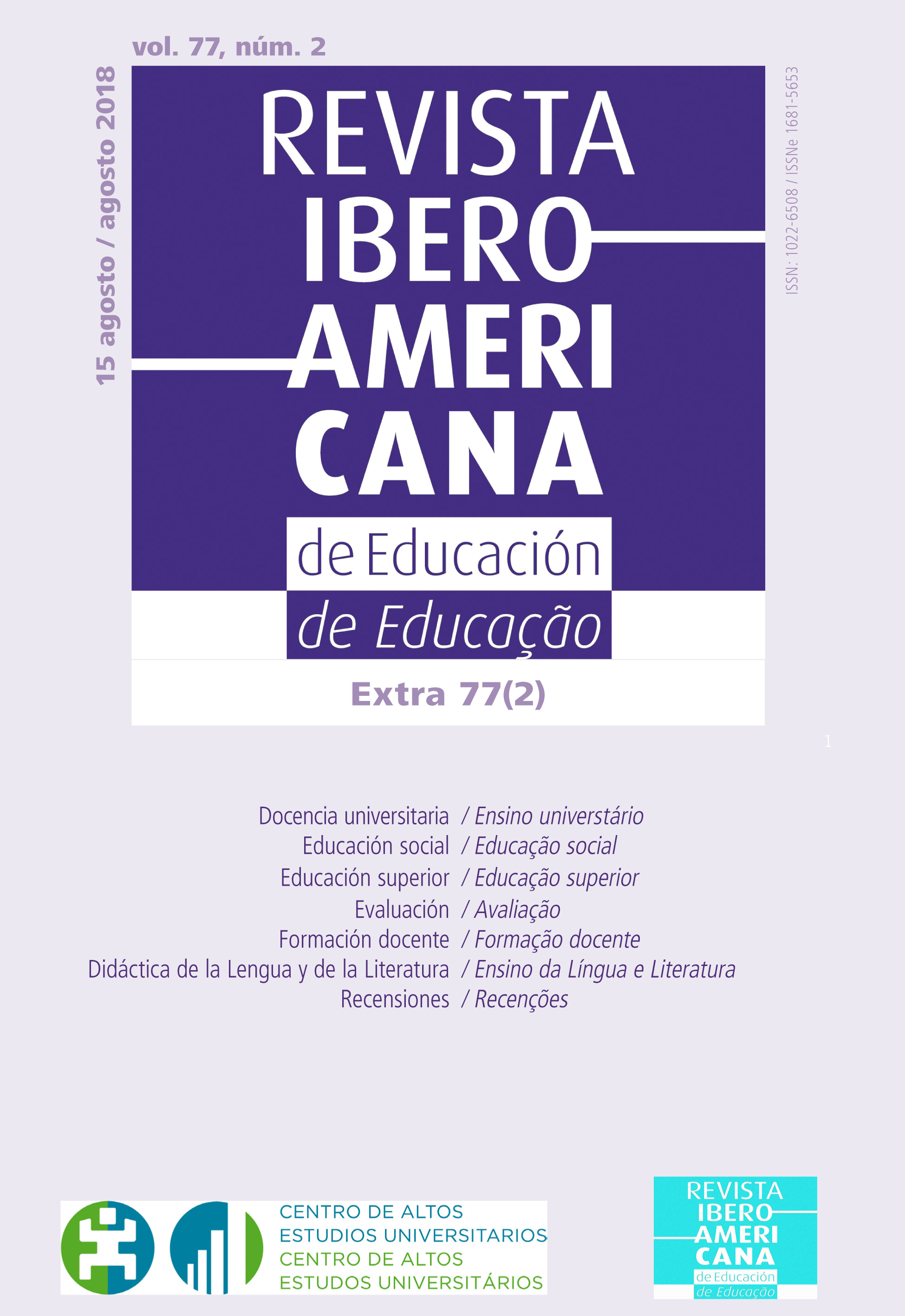Evaluation of some classroom workshops about the intercultural competence in a BA in Teaching
DOI:
https://doi.org/10.35362/rie7723088Keywords:
Skill, culture, bilingualismAbstract
This article provides an overview about the opinions of two groups of students from a BA program in languages at Universidad El Bosque (Colombia) about some activities carried out with them in order to develop their intercultural competence. To get these ideas, some discussion groups were carried out and the responses from both groups were checked in order to evaluate the effectiveness of these workshops. This article presents the details that the data analysis provided. Among the results, it can be highlighted the importance students gave to food as a means to learn about a culture. As a conclusion, it can be said that the activities had a positive impact on the participants since the expectation is to carry on with them.
Downloads
References
Aguado, T. (2003). Pedagogía Intercultural. Madrid: McGraw-Hill.
Aguirre, R. (4 de noviembre de 2017). Minga Indígena: las mismas peticiones ante el Gobierno. El Colombiano. Recuperado de http://www.elcolombiano.com/colombia/minga-indigena-las-mismas-peticiones-ante-el-gobierno-BF7632773
Alonso, I, y Fernández, M. (2013). Enseñar la competencia intercultural. En Y. Ruiz de Zarobe and M. L. Ruiz de Zarobe (Eds.), Enseñar hoy una lengua extranjera (pp.182-220). London: Portal Education, Editors.
Byram, M. (1997). Teaching and Assessing Intercultural Communicative Competence. Clevedon: Multilingual Matters Ltd.
CEPAL (2014). Los pueblos indígenas en América Latina (Síntesis). Santiago, Chile: Naciones Unidas.
Cifuentes, L. M. (2014). Educación intercultural y democracia participativa en el ámbito educativo. Recuperado de http://www.aulaintercultural.org
Creswell, J. (2012). Educational research: Planning, conducting and evaluating quantitative and qualitative research. (4th ed.). Boston: Pearson.
DANE (2007). Colombia una nación multicultural, Su diversidad étnica. Recuperado de: https://goo.gl/gvjLFy
Escarbajal Frutos, A. (2010). Interculturalidad, Mediación y Trabajo colaborativo. Madrid: Narcea.
Hernández, E. y Valdez, S. (2010). El papel del profesor en el desarrollo de la competencia intercultural. Algunas propuestas didácticas. Decires, Revista del Centro de Enseñanza para Extranjeros, 12(14), 91-115.
Hernández, R., Fernández, C., y Baptista, P. (2014). Metodología de la Investigación. México: Mc Graw Hill.
Instituto Cervantes (2002). Marco de referencia europeo para el aprendizaje, la enseñanza y la evaluación de lenguas. Madrid: Instituto Cervantes.
Ministerio de Educación (MEN) (s.f.a). Ley General de Educación. Recuperado de http://www.mineducacion.gov.co/1621/articles-85906_archivo_pdf.pdf
Ministerio de Educación de Colombia (MEN) (s.f.b). Normatividad básica para la Etnoeducación. Recuperado de http://www.mineducacion.gov.co/1621/article-85384.html
Olaya, A. y Gómez, L. (2013). Exploring EFL Pre-Service Teachers’ Experiences with Cultural Content and Intercultural Communicative Competence at Three Colombian Universities. PROFILE, 15(2), 49-67.
ONIC, CRIC, IESALC- UNESCO (2004). Educación Superior Indígena en Colombia. Recuperado de: http://unesdoc.unesco.org/images/0013/001399/139947s.pdf
Paricio, M. (2014). Competencia intercultural en la enseñanza de lenguas extranjeras. Porta Linguarum, 2, 216-226.
Porto, L. y Ruiz, J. (2014). Los Grupos de discusión. En K. Sáenz y G.Tamez (Eds.), Métodos y Técnicas Cualitativas y Cuantitativas Aplicables a la Investigación en Ciencias Sociales (pp.253-273). México: Tirant Humanidades.
Ramos, B. (2013). Towards the Development of Intercultural Competence Skills: A Pedagogical Experience with Pre-Service Teachers. HOW (20), 206-225.
Salgado, A. (2007). Investigación cualitativa: diseños, evaluación del rigor metodológico y retos. Liberabit. Revista de Psicología, 13, 71-78.
Varón, M. (2014). Consumo cultural, inglés y globalización. Ibagué: Universidad del Tolima.
Velasco M., H. (2013). Hablar y pensar, tareas culturales: temas antropología lingüística y antropología cognitiva. Madrid: UNED.
How to Cite
Downloads
Published
Issue
Section
License
Any authors who publish with this journal accept the following terms:















